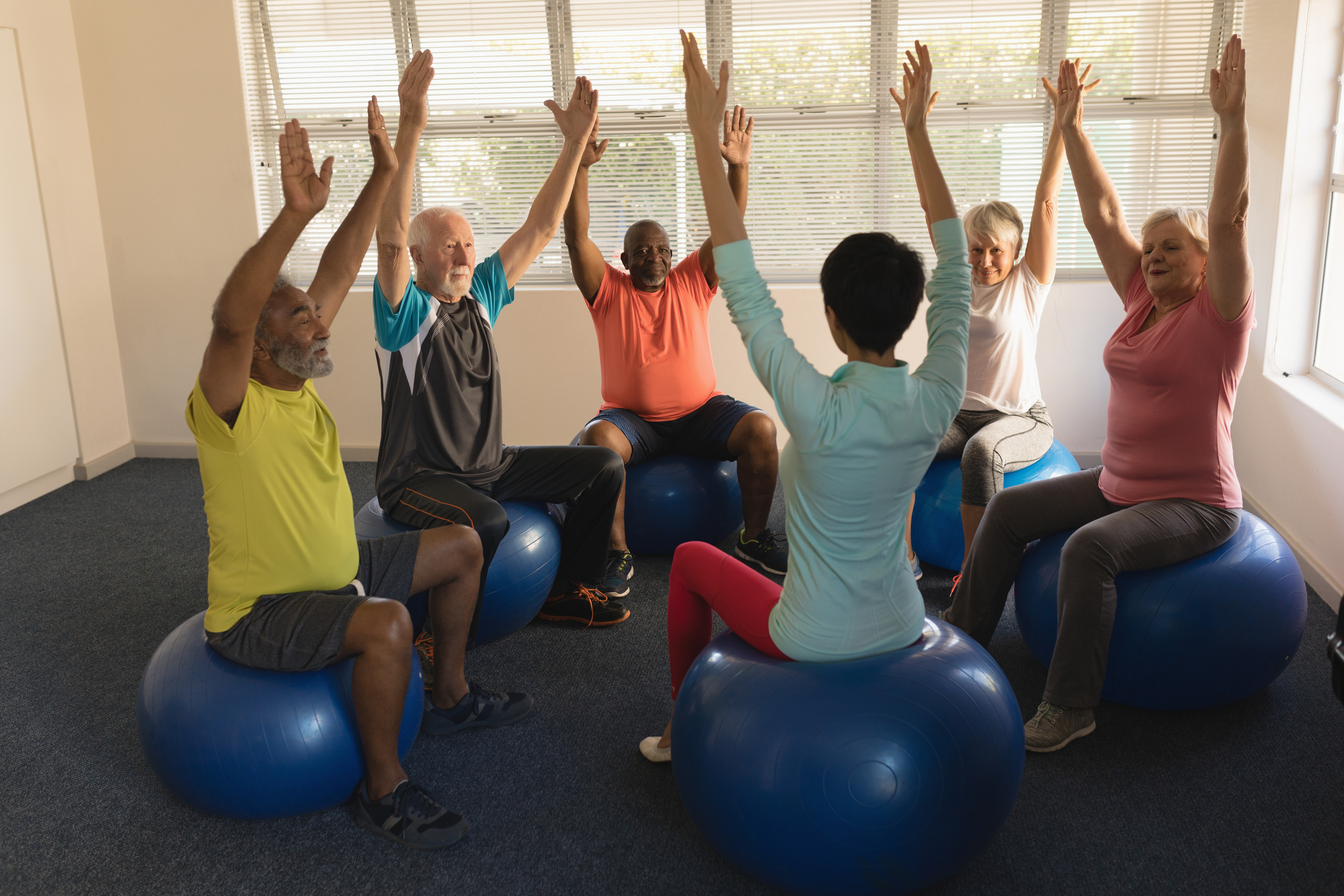Living with dementia or being a caregiver for a loved one with cognitive impairment comes with a daily list of challenges; one of them is finding ways to overcome issues that can hinder the ability of people with dementia to participate in physical activities. Alzheimer’s and other forms of dementia can interfere with balance, mobility, coordination and with the motivation to stay active. But according to a recent Globe and Mail report, researchers at the University of Waterloo are working to develop dementia-friendly and inclusive exercise programs and tools.
Participating in group physical activity classes not only helps adults with dementia prevent loss of mobility but it can also curb isolation and create more opportunities for social interaction. Regular exercise can also improve brain health and possibly even slow cognitive decline and memory loss.
By creating more inclusive community fitness programs, people with dementia can continue to enjoy regular exercise with support from trained fitness providers. Researchers are working to design tools and methods of supporting more dementia-inclusive environments while helping to break down stereotypes. To meet these needs, the team at Waterloo University has developed The Passport Advocacy Tool, a card an individual with dementia could carry and use to help introduce themselves and provide information about their condition while participating in community programs.
Researchers at the Brain and Body Lab at the University of Waterloo strive to use the benefits of physical activity to prevent dementia and improve the lives of people living with dementia. If you or someone you know has been recently diagnosed with mild cognitive impairment or dementia and would like to contribute to neuroscience research through the Department of Kinesiology at Waterloo, contact the brain and body research group here.
Learn more about how physical activity can promote well-being and self-esteem while stimulating the minds of people with early to mid-stage dementia by following this link to the Minds in Motion program, in partnership with the Alzheimer’s Society of Ontario.






Add Your Voice
0 Comments
Join the Discussion